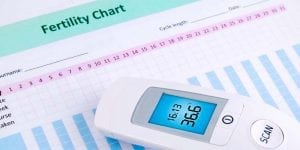The two-week wait refers to the grueling period of time a couple has to wait between ovulation and a pregnancy test to see if conception has occurred. This is often a stressful time for hopeful couples, as they are eager to find out if they are on the road to parenthood. This waiting game comes along with emotional stages that everyone must go through in order to complete the two weeks.
Why Do a Two-Week Wait?
It is important to give your body time to conceive and to accept the pregnancy to begin growing. During this two-week period, all you can do is relax and hope for positive results. The reason to wait two weeks rather than taking a pregnancy test before that is to decrease your levels of stress. You may feel very let down and disappointed if you take a pregnancy test after one week and it is negative. This puts undue stress on your body that is not healthy for your possibly growing fetus.
While it takes a large amount of patience and willpower to keep the pregnancy tests away for two entire weeks, it is better for your mentality in the end. This way, you can be sure once the time period is over that you have or have not conceived.
The Purpose
The wait coincides with the luteal phase of the menstrual cycle, spanning from ovulation to the end of the 28-day menstrual cycle. The waiting portion of this cycle refers to the anticipation of finding out if you are pregnant. The beginning of the wait may be determined by a basal body temperature surge first thing in the morning or by a positive result on a fertility monitor. This is when the wait begins if intercourse has been timed correctly.
Stages of the Wait

Implantation bleeding may occur, which may look like a period. This happens when the fertilized egg attaches to the uterus, causing bleeding and mild cramping. Not everyone experiences this.
Even though you do not know during the wait, it is important to treat yourself as if you are pregnant. Avoid anything you would during pregnancy such as alcohol, excess caffeine, raw foods and fish that is high in mercury.
It is important to stay active during the wait if exercise is something that you do on a regular basis. This is a great way to reduce the stress of the wait that can affect fertility. While this is not a great time to start a new intense training program, activities that your body is used to doing should be continued.
If your period comes in fewer than two weeks after ovulation, it may be a sign that there is something wrong with your fertility. This could be a minor thing such as miscalculating ovulation, or it could be more serious, such as a luteal phase defect. This may alert a doctor to prescribe extra progesterone after ovulation to help lengthen the luteal phase.
It is important to take a prenatal vitamin with 400 to 800 micrograms of folic acid prior to the two-week wait. Folic acid is very important in pregnancy, as it helps prevent neural tube defects. This then prevents damage to the baby’s neural tube, which turns into the baby’s brain and spinal cord.
While the two-week wait is difficult, it is necessary to begin a healthy pregnancy. Due to the menstrual cycle, the body is not able to confirm a pregnancy until two weeks after conception, so it is important to relax during this time and let your body run its course.




